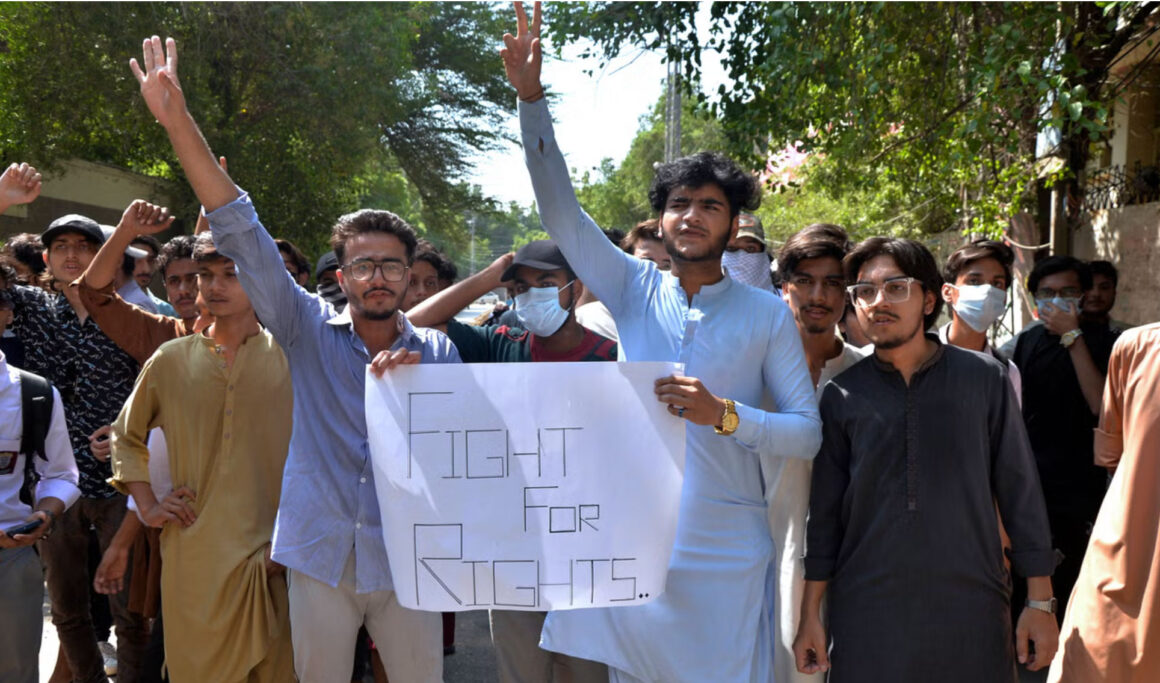

By Shehzad Arshad
On 14 October students from the Punjab Group of Colleges (PGC) in Lahore staged a massive protest against sexual assault. On Gulberg Campus 10 a security guard reportedly raped a first-year student in a basement. Hearing her screams from a classroom, fellow students rushed to help. Her condition was so bad that she was taken to hospital.
When the students demanded action, they faced intimidation from the Principal and other teachers. They took to social media to mobilise widespread protests later that day. Students from other colleges joined the protests.
State authorities initially attempted to restore calm by arresting the accused. Punjab’s Higher Education Minister Rana Sikandar Hayat promised justice. However, this was an empty promise. The college administration and police denied the rape had taken place, attacking the protesters and spreading misinformation. By the end of the day, 28 students were injured by police violence.
Government and media efforts to discredit the protests included a video of a police officer reciting Quranic verses supposedly ‘proving’ it was a rumour. Another video featured the victim’s uncle denying the incident, suggesting she fell downstairs.
The administration destroyed the evidence and the police sided with them, leaving the victim and her family in fear of reprisals. Punjab Chief Minister Maryam Nawaz of the ruling Pakistan Muslim League declared the rape ‘fabricated news’, blaming the PTI (Imran Khan’s political party) for spreading rumours. This has led to confusion among liberals and the left, with some believing it to be a PTI conspiracy.
Movement grows
The students, however, remain steadfast. They know harassment and assaults are frequent on PGC campuses, part of a large private university group owned by Mian Amir Mahmood. The cover-up is driven by Mahmood’s desire to protect the reputation and profitability of his $132.6m private education empire, aided by his government connections and widespread sexism.
The political parties are defending a system that fosters abuse despite rising reports of harassment.
Despite all this the students’ struggle continues. Solidarity actions have spread to Gujranwala, Faisalabad, Peshawar and other cities. Outraged students, led by the Progressive Students’ Collective, staged a protest march from Government College to the Punjab Assembly on 15 October. They raised demands for an independent investigation, anti-harassment committees and awareness campaigns.
On the 17th, protests erupted in Rawalpindi, with over 250 students arrested. The Progressive Students’ Collective declared: ‘Until and unless the demands of students are met, we will continue to expand these protests across the country.’ They need and deserve support for their courageous struggle.
This movement is crucial in challenging and patriarchy. In Pakistan assaults against women are common in educational institutions and workplaces. Victims often suffer in silence, fearing defamation. Students should form elected committees to investigate assaults and resist collectively, drawing in workers and trade unions.
The growing protests offer a chance to unite students and workers against repression, sexism and the cuts and privatisation underway in the education sector, forming a mass movement for systemic change.